Monday, 06 April 2015 6:00pm - 8:00pm in Room 2011 of the VA San Diego Medical Center
John R. Kelsoe, M.D.
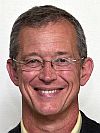

Dr. Kelsoe will discuss the movement towards personalized or precision medicine and the science that makes it possible. Everyone responds differently to treatment. How can we best tailor the treatment to the patient? Soon testing will help doctors find the best medicine for each patient, reducing the time to reach stability. Note that regular DBSA San Diego support groups will still meet in the other rooms at their usual time of 6pm to 8pm.
John Kelsoe was born in Birmingham, Alabama and received his MD degree from the University of Alabama. He trained in psychiatry at UCSD and then trained in genetics research at the National Institutes of Mental Health in Bethesda, Maryland. He returned to UCSD and has been on the medical faculty for over twenty years. His long-term research interests have focused on the role of genes in the cause of bipolar disorder and the response to medication. He runs a bipolar treatment clinic at the VA San Diego Medical Center where he conducts clinical care, teaching, and research. Dr. Kelsoe is also a founding member of DBSA San Diego and serves as one of its advisers.
John Kelsoe was born in Birmingham, Alabama and received his MD degree from the University of Alabama. He trained in psychiatry at UCSD and then trained in genetics research at the National Institutes of Mental Health in Bethesda, Maryland. He returned to UCSD and has been on the medical faculty for over twenty years. His long-term research interests have focused on the role of genes in the cause of bipolar disorder and the response to medication. He runs a bipolar treatment clinic at the VA San Diego Medical Center where he conducts clinical care, teaching, and research. Dr. Kelsoe is also a founding member of DBSA San Diego and serves as one of its advisers.
Monday, 07 April 2014 6:00pm - 8:00pm
Cruz Ponce
and
Anna Adler
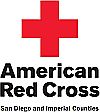
and
Anna Adler

This will be a Red Cross Ready event merging traditional preparedness, action, and recovery with mental health. Information will be provided about what to expect in a shelter, and there will be an interactive discussion about how the Red Cross and the mental health community can partner more effectively to serve San Diegans in disaster situations.
Cruz Ponce is the Senior Disaster Program Manager for San Diego County of your American Red Cross. Cruz has over eight years of disaster management experience and has deployed on several national relief operations, most recently, Hurricane Sandy.
Anna Adler has been interning with the American Red Cross as part of her Masters of Social Work program. She has been working with the disaster services department to help San Diego to become better prepared for emergency situations.
Cruz Ponce is the Senior Disaster Program Manager for San Diego County of your American Red Cross. Cruz has over eight years of disaster management experience and has deployed on several national relief operations, most recently, Hurricane Sandy.
Anna Adler has been interning with the American Red Cross as part of her Masters of Social Work program. She has been working with the disaster services department to help San Diego to become better prepared for emergency situations.
Monday, 04 March 2013 6:00pm - 8:00pm
Marla Kingkade,
Debbie Farrar,
and
Yaulande Miller
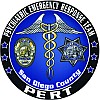
Debbie Farrar,
and
Yaulande Miller

Marla Kingkade, Debbie Farrar, and Yaulande Miller will provide an interactive overview of the SDPD’s Psychiatric Emergency Response Team (PERT). The presentation will also cover how to contact law enforcement in the event of a mental health crisis and law enforcement response on the scene.
Marla Kingkade has been with PERT (the Psychiatric Emergency Response Team) for several years and coordinates the law enforcement portion of the PERT program. PERT, in partnership with San Diego County Health and Human Services, San Diego County Law Enforcement, National Alliance on Mental Illness (NAMI San Diego) and the Community Research Foundation, contributes to the well-being of individuals with mental illness by actively and compassionately assisting individuals in crisis who come to the attention of law enforcement to access appropriate services and to optimize outcomes through on-scene assessments and referrals.
Lieutenant Debra Farrar is the PERT Coordinator for the SDPD. She has been with the Department for 25 years. She is married with three sons and three grandchildren.
Yaulande Miller is the SDPD Dispatch Supervisor.
Marla Kingkade has been with PERT (the Psychiatric Emergency Response Team) for several years and coordinates the law enforcement portion of the PERT program. PERT, in partnership with San Diego County Health and Human Services, San Diego County Law Enforcement, National Alliance on Mental Illness (NAMI San Diego) and the Community Research Foundation, contributes to the well-being of individuals with mental illness by actively and compassionately assisting individuals in crisis who come to the attention of law enforcement to access appropriate services and to optimize outcomes through on-scene assessments and referrals.
Lieutenant Debra Farrar is the PERT Coordinator for the SDPD. She has been with the Department for 25 years. She is married with three sons and three grandchildren.
Yaulande Miller is the SDPD Dispatch Supervisor.
Monday, 04 February 2013 6:00pm - 8:00pm
Marilynn Mika Spencer, Attorney-at-Law
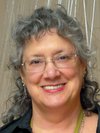

Do you work? Do you want to work? Does your depression, bipolar disorder, or other mental health conditions get in the way of keeping your job, advancing, or even getting a job in the first place?
This country has two powerful laws that benefit people with mental health disorders. For working people, the Americans with Disabilities Act (ADA) now gives stronger protection than ever before, thanks to recent amendments and court cases. Another law, the Family and Medical Leave Act (FMLA), provides a level of job security for people whose medical conditions require them to miss some work. In addition, California has its own version of these laws which are more employee-friendly and a better choice in nearly every situation. But these laws are not self-enforcing – you have to take steps to make the law work for you.
Ms. Spencer will provide an overview of this legal protection with an emphasis on the more-helpful California laws. She will offer practical tools to help you get the reasonable accommodation you need, leave of absence you request, or promotion and training you deserve.
This country has two powerful laws that benefit people with mental health disorders. For working people, the Americans with Disabilities Act (ADA) now gives stronger protection than ever before, thanks to recent amendments and court cases. Another law, the Family and Medical Leave Act (FMLA), provides a level of job security for people whose medical conditions require them to miss some work. In addition, California has its own version of these laws which are more employee-friendly and a better choice in nearly every situation. But these laws are not self-enforcing – you have to take steps to make the law work for you.
Ms. Spencer will provide an overview of this legal protection with an emphasis on the more-helpful California laws. She will offer practical tools to help you get the reasonable accommodation you need, leave of absence you request, or promotion and training you deserve.
Monday, 01 October 2012 6:00pm - 8:00pm
Divya Kakaiya, Ph.D., CEDS


This interactive presentation will illustrate a simple way to understand the brain and some of the amazingly easy ways we can regulate our brains.
Neurofeedback as a treatment modality will also be discussed, in addition to other, more holistic ways, of tending to our brains.
Dr. Divya Kakaiya, a licensed psychologist, has been practicing in San Diego for the last 28 years and is a pioneer in her field.
For more information about her seasoned background, please visit Dr. Kakaiya at http://www.healthywithin.com/.
Neurofeedback as a treatment modality will also be discussed, in addition to other, more holistic ways, of tending to our brains.
Dr. Divya Kakaiya, a licensed psychologist, has been practicing in San Diego for the last 28 years and is a pioneer in her field.
For more information about her seasoned background, please visit Dr. Kakaiya at http://www.healthywithin.com/.
Monday, 06 August 2012 6:00pm - 8:00pm
John R. Kelsoe, M.D.


Lithium is the gold standard for treatment of bipolar disorder. It is the oldest and best known medication, and continues to show the highest effectiveness. Though most patients benefit from lithium, a portion do not respond to it. Another portion of patients experience a dramatic response with virtual elimination of episodes for decades. Bipolar patients typically go through numerous medication trials over several years before the best medication is found. There is a great need to develop tests that can predict which medication will be best for each individual patient. This has been called personalized medicine. I will discuss studies that aim to develop a genetic test for lithium response and how this will be used in the clinic.
John Kelsoe was born in Birmingham, Alabama and received his MD degree from the University of Alabama. He trained in psychiatry at UCSD and then trained in genetics research at the National Institutes of Mental Health in Bethesda, Maryland. He returned to UCSD and has been on the medical faculty for over twenty years. His long-term research interests have focused on the role of genes in the cause of bipolar disorder and the response to medication. He runs a bipolar treatment clinic at the VA San Diego Medical Center where he conducts clinical care, teaching, and research.
John Kelsoe was born in Birmingham, Alabama and received his MD degree from the University of Alabama. He trained in psychiatry at UCSD and then trained in genetics research at the National Institutes of Mental Health in Bethesda, Maryland. He returned to UCSD and has been on the medical faculty for over twenty years. His long-term research interests have focused on the role of genes in the cause of bipolar disorder and the response to medication. He runs a bipolar treatment clinic at the VA San Diego Medical Center where he conducts clinical care, teaching, and research.
Monday, 04 June 2012 6:00pm - 7:30pm
Bonnie Bear


QPR is designed to give members of the general public the basic skills necessary to recognize a crisis and the warning signs that someone may be contemplating suicide. QPR is like CPR; it’s an emergency mental health intervention for suicidal persons.
As a QPR-trained Gatekeeper, you will learn to:
As a QPR-trained Gatekeeper, you will learn to:
- recognize warning signs of suicide
- know how to offer hope
- know how to get help and save a life
Bonnie Bear is Executive Director of Survivors of Suicide Loss. She is a survivor herself, having lost her husband Gordon to suicide in August 2002, and a certified instructor of QPR (Question, Persuade, Refer) suicide prevention.
Wednesday, 28 March 2012 6:30pm - 7:30pm
David Granirer,
Founder/Counselor, Author and Stand-Up Comic

Founder/Counselor, Author and Stand-Up Comic

You have to be nuts to take counselor and stand-up comic David Granirer's Stand Up For Mental Health program where he teaches stand-up comedy to people with mental illness, but the results can be life-changing! This hilarious presentation is part comedy and part education. David, who himself suffers from depression, looks at how humour can help fight the stigma around mental illness. Through video clips, you’ll also get to see examples of his comics breaking down barriers by finding the lighter side of their mental health journeys.
By doing stand up comedy, something that most so-called "normal" people would never want to attempt, the Stand Up For Mental Health comics fight stigma by demonstrating what people with mental illness are capable of.
So often conferences bring in experts to talk about mental illness. This is a chance to actually hear from the people who have it. And what they have to say will surprise, delight, and inspire you!
Stand Up For Mental Health was featured in the VOICE Award-winning documentary Cracking Up!
David Granirer is a counselor, stand-up comic, speaker, and author of The Happy Neurotic: How Fear and Angst Can Lead To Happiness and Success. He has taught stand-up comedy to recovering addicts and cancer patients, and is the founder of Stand Up For Mental Health. His work is featured by media across North America and in the Voice Award-winning documentary Cracking Up. David also gives laughter in the workplace presentations to hundreds of organizations across North America, helping them use humor to decrease stress, increase wellness, and cope with change. He is also the recipient of a Champion of Mental Health Award. These national awards recognize the contributions of individuals and organizations who have made outstanding contributions to the advancement of the mental health agenda in Canada.
For further information about David Granirer, visit him on the Web at http://www.standupformentalhealth.com/.
By doing stand up comedy, something that most so-called "normal" people would never want to attempt, the Stand Up For Mental Health comics fight stigma by demonstrating what people with mental illness are capable of.
So often conferences bring in experts to talk about mental illness. This is a chance to actually hear from the people who have it. And what they have to say will surprise, delight, and inspire you!
Stand Up For Mental Health was featured in the VOICE Award-winning documentary Cracking Up!
David Granirer is a counselor, stand-up comic, speaker, and author of The Happy Neurotic: How Fear and Angst Can Lead To Happiness and Success. He has taught stand-up comedy to recovering addicts and cancer patients, and is the founder of Stand Up For Mental Health. His work is featured by media across North America and in the Voice Award-winning documentary Cracking Up. David also gives laughter in the workplace presentations to hundreds of organizations across North America, helping them use humor to decrease stress, increase wellness, and cope with change. He is also the recipient of a Champion of Mental Health Award. These national awards recognize the contributions of individuals and organizations who have made outstanding contributions to the advancement of the mental health agenda in Canada.
For further information about David Granirer, visit him on the Web at http://www.standupformentalhealth.com/.
Monday, 05 March 2012 6:00pm - 8:00pm
Maggie Reese


Maggie will discuss the difficulty of a major transition which was going off to college on a full-ride scholarship. She will focus on her experiences from college years, hospitalizations, the suicidal depths of depression, and the extreme highs of mania. In addition, she shares about how she was diagnosed with Type I Bipolar Disorder, medications, and the road to recovery. Lastly, Maggie goes into detail of how difficult it was having a child, the challenges of being a mother, wife, and staying well.
Maggie Reese was a nationally ranked track star on a full ride scholarship to the University of Idaho. Unfortunately, her Olympic dream ended when she broke her leg while running in a race. Without her running career to keep her together, mental illness crept in and took over. Her book, Runaway Mind, details Maggie's journey with bipolar disorder. In this memoir, she reveals her battle with the illness during her young life. She shares her harrowing struggle with being bipolar through her own words along with the words of other women close to her. Reese offers readers her personal experience with this disorder and how she and her family dealt with it from symptoms to causes, to treatment and recovery. Maggie sends out a message of faith, provides strength, and encourages positive outlook in order to survive the illness and to further enjoy life to the fullest. Maggie is now a motivational public speaker for all kinds of organizations throughout Southern California. Currently she serves as on the Executive Board of Directors for the International Bipolar Foundation. Maggie is a stay-at-home mom who, when not writing, loves to travel, garden, read, and spend time with her family and friends. Hearing how her book has given hope to so many people with bipolar and to their families, who love them, makes her journey worth it! http://www.runawaymind.net/ and info@runawaymind.net.
Maggie Reese was a nationally ranked track star on a full ride scholarship to the University of Idaho. Unfortunately, her Olympic dream ended when she broke her leg while running in a race. Without her running career to keep her together, mental illness crept in and took over. Her book, Runaway Mind, details Maggie's journey with bipolar disorder. In this memoir, she reveals her battle with the illness during her young life. She shares her harrowing struggle with being bipolar through her own words along with the words of other women close to her. Reese offers readers her personal experience with this disorder and how she and her family dealt with it from symptoms to causes, to treatment and recovery. Maggie sends out a message of faith, provides strength, and encourages positive outlook in order to survive the illness and to further enjoy life to the fullest. Maggie is now a motivational public speaker for all kinds of organizations throughout Southern California. Currently she serves as on the Executive Board of Directors for the International Bipolar Foundation. Maggie is a stay-at-home mom who, when not writing, loves to travel, garden, read, and spend time with her family and friends. Hearing how her book has given hope to so many people with bipolar and to their families, who love them, makes her journey worth it! http://www.runawaymind.net/ and info@runawaymind.net.
Monday, 06 February 2012 6:00pm - 8:00pm
Lisa Eyler, Ph.D.
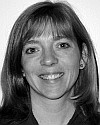

Neuroimaging studies allow scientists to explore the inner workings of the mind and learn more about how thinking and emotional processing may be affected in Bipolar Disorder. In this talk, Dr. Eyler will explain some of the most common types of neuroimaging methods and how they work. She will then present findings from studies of individuals with Bipolar Disorder that have used these techniques to measure the integrity of brain structures and how the brain functions when challenged with emotional and cognitive tasks. Exciting future directions for the use of neuroimaging in Bipolar Disorder also will be discussed.
Dr. Eyler received her undergraduate degree from Duke University in 1991 and her Ph.D. in clinical psychology from the University of Pennsylvania in 1996. She then completed a clinical psychology internship at UCSD and the San Diego VA, with a focus on neuropsychological assessment and adult outpatient psychotherapy. From 1997-1999, she was a post-doctoral fellow in Geriatric Psychology under the mentorship of Dilip Jeste, M.D. and Gregory Brown, Ph.D. She then joined the faculty of the Desert-Pacific Mental Illness Research Education and Clinical Center (MIRECC) as a Research Health Scientist. In 2004, she was appointed an Assistant Adjunct Professor in the UCSD Department of Psychiatry, and, in 2010, became an Associate Adjunct Professor. Dr. Eyler also is a VA-privileged Clinical Research Psychologist in the MIRECC program. In addition, she serves as a faculty member in the SDSU/UCSD Joint Doctoral Program in Clinical Psychology and the Stein Institute for Research on Aging. Dr. Eyler’s research program is currently supported by several NIH grants on which she is an investigator, including an R01 grant from NIMH entitled "Structural and Functional Brain Aging in Bipolar Disorder" on which she is Principal Investigator.
The PowerPoint slides used for Dr. Eyler's presentation are now available online here, in the form of a PDF (Adobe Acrobat) file.
Dr. Eyler received her undergraduate degree from Duke University in 1991 and her Ph.D. in clinical psychology from the University of Pennsylvania in 1996. She then completed a clinical psychology internship at UCSD and the San Diego VA, with a focus on neuropsychological assessment and adult outpatient psychotherapy. From 1997-1999, she was a post-doctoral fellow in Geriatric Psychology under the mentorship of Dilip Jeste, M.D. and Gregory Brown, Ph.D. She then joined the faculty of the Desert-Pacific Mental Illness Research Education and Clinical Center (MIRECC) as a Research Health Scientist. In 2004, she was appointed an Assistant Adjunct Professor in the UCSD Department of Psychiatry, and, in 2010, became an Associate Adjunct Professor. Dr. Eyler also is a VA-privileged Clinical Research Psychologist in the MIRECC program. In addition, she serves as a faculty member in the SDSU/UCSD Joint Doctoral Program in Clinical Psychology and the Stein Institute for Research on Aging. Dr. Eyler’s research program is currently supported by several NIH grants on which she is an investigator, including an R01 grant from NIMH entitled "Structural and Functional Brain Aging in Bipolar Disorder" on which she is Principal Investigator.
The PowerPoint slides used for Dr. Eyler's presentation are now available online here, in the form of a PDF (Adobe Acrobat) file.
Monday, 07 November 2011 6:00pm - 8:00pm
David Gersten, M.D.
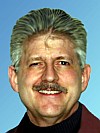

Dr. Gersten will explain the power of amino acids in health, illness, and recovery. The human body, by dry weight, is 70% amino acids. They are the building blocks of protein, neurotransmitters, hormones, and all our organs. They are also the foundation of healing.
Targeted amino acid therapy can be of great assistance in almost all chronic illness, both mental and physical, including alcoholism. Why is it still a secret? Come and find out, and learn how to apply this science to your own health, energy, vitality, and recovery from illness. Amino acid therapy, based on scientific lab testing, is too powerful to be kept secret.
Dr. Gersten has worked with amino acid therapy since 1982, initially using this approach to accelerate healing from depression, anxiety, and insomnia. Over the years he has worked with a wide variety of chronic illnesses including CFS/ME, fibromyalgia, irritable bowel syndrome, and much more.
Dr. Gersten is nationally recognized for his work in integrative and alternative medicine, his expertise in amino acid therapy, psychospiritual counseling, and guided imagery. His Web site http://www.aminoacidpower.com/ is one of the largest amino acid sites on the Internet. Author of Are You Getting Enlightened Or Losing Your Mind?, The LITTLE BOOK: Strategies for Healing Alcoholism, and The POW Survival Guide(dedicated to the Allied Troops of Operation Desert Storm). The Guide was part of Navy and Army SERE training. Dr. Gersten writes a monthly column on Alternative Medicine for The Life Connection, and has done so for 13 years. He has consulted to the White House on alternative medicine, utilized mental imagery to train LPGA golfers and other peak performers, and consulted to Rodale Press/Prevention magazine on 18 books as their mental imagery expert.
Targeted amino acid therapy can be of great assistance in almost all chronic illness, both mental and physical, including alcoholism. Why is it still a secret? Come and find out, and learn how to apply this science to your own health, energy, vitality, and recovery from illness. Amino acid therapy, based on scientific lab testing, is too powerful to be kept secret.
Dr. Gersten has worked with amino acid therapy since 1982, initially using this approach to accelerate healing from depression, anxiety, and insomnia. Over the years he has worked with a wide variety of chronic illnesses including CFS/ME, fibromyalgia, irritable bowel syndrome, and much more.
Dr. Gersten is nationally recognized for his work in integrative and alternative medicine, his expertise in amino acid therapy, psychospiritual counseling, and guided imagery. His Web site http://www.aminoacidpower.com/ is one of the largest amino acid sites on the Internet. Author of Are You Getting Enlightened Or Losing Your Mind?, The LITTLE BOOK: Strategies for Healing Alcoholism, and The POW Survival Guide(dedicated to the Allied Troops of Operation Desert Storm). The Guide was part of Navy and Army SERE training. Dr. Gersten writes a monthly column on Alternative Medicine for The Life Connection, and has done so for 13 years. He has consulted to the White House on alternative medicine, utilized mental imagery to train LPGA golfers and other peak performers, and consulted to Rodale Press/Prevention magazine on 18 books as their mental imagery expert.
Monday, 01 August 2011 6:00pm - 8:00pm
Marla Kingkade


Marla Kingkade, Law Enforcement Liaison and Community Outreach for PERT, will provide an overview of the ERP (Emergency Response Plan) form and explain the purpose of the ERP form. A DVD will also be shown.
Marla Kingkade has been with PERT (the Psychiatric Emergency Response Team) for several years and currently coordinates the law enforcement portion of the PERT program. PERT, in partnership with San Diego County Health and Human Services, San Diego County Law Enforcement, National Alliance on Mental Illness (NAMI San Diego) and the Community Research Foundation, contributes to the well-being of individuals with mental illness by actively and compassionately assisting individuals in crisis who come to the attention of law enforcement to access appropriate services and to optimize outcomes through on-scene assessments and referrals.
Marla Kingkade has been with PERT (the Psychiatric Emergency Response Team) for several years and currently coordinates the law enforcement portion of the PERT program. PERT, in partnership with San Diego County Health and Human Services, San Diego County Law Enforcement, National Alliance on Mental Illness (NAMI San Diego) and the Community Research Foundation, contributes to the well-being of individuals with mental illness by actively and compassionately assisting individuals in crisis who come to the attention of law enforcement to access appropriate services and to optimize outcomes through on-scene assessments and referrals.
Monday, 11 July 2011 6:00pm - 8:00pm
Scott Stewart
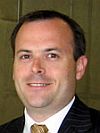

Mr. Stewart will present a primer on public benefits – how to get the benefits as well as how to keep them. He'll have the answers to frequent questions like "What if my parents gift me some money – will it affect my SSI?" and "What will happen when my insurance runs out?" There will be plenty of time for questions and answers from the audience.
Scott Stewart graduated from California Western School of Law in 1995. He is a member of the California Bar Association, San Diego County Bar Association, California Advocates for Nursing Home Reform, and the National Academy of Elder Law Attorneys. He is the incoming co-chair of the San Diego County Bar Association Elder Law section.
He has appeared as a regular guest on the Lawyer in Blue Jeans radio show. He conducts regular seminars and workshops on elder law topics in Southern California for caregiver support groups including: the Southern Caregiver Resource Association; the Parkinson's Disease Association; the George G. Glenner Alzheimer's Family Centers; and the Alzheimer's Association. He has also taught classes on Medi-Cal eligibility to discharge planners, nurses, and social workers at Sharp, Scripps, and Pomerado Hospitals as well as various in-home care providers, including LivHome. He has also presented to Elder Law Students at Thomas Jefferson School of Law in San Diego, and will be on Channel 10 (KGTV) news in February 2006.
His practice is devoted to estate planning, asset protection and retention, and elder law issues, including Medi-Cal benefit law. In this capacity he typically helps seniors qualify for Medi-Cal benefits while preserving their assets for themselves or their loved ones. He currently represents client throughout the state of California.
Scott Stewart graduated from California Western School of Law in 1995. He is a member of the California Bar Association, San Diego County Bar Association, California Advocates for Nursing Home Reform, and the National Academy of Elder Law Attorneys. He is the incoming co-chair of the San Diego County Bar Association Elder Law section.
He has appeared as a regular guest on the Lawyer in Blue Jeans radio show. He conducts regular seminars and workshops on elder law topics in Southern California for caregiver support groups including: the Southern Caregiver Resource Association; the Parkinson's Disease Association; the George G. Glenner Alzheimer's Family Centers; and the Alzheimer's Association. He has also taught classes on Medi-Cal eligibility to discharge planners, nurses, and social workers at Sharp, Scripps, and Pomerado Hospitals as well as various in-home care providers, including LivHome. He has also presented to Elder Law Students at Thomas Jefferson School of Law in San Diego, and will be on Channel 10 (KGTV) news in February 2006.
His practice is devoted to estate planning, asset protection and retention, and elder law issues, including Medi-Cal benefit law. In this capacity he typically helps seniors qualify for Medi-Cal benefits while preserving their assets for themselves or their loved ones. He currently represents client throughout the state of California.
Monday, 06 June 2011 6:00pm - 8:00pm
Irwin S. Rosenfarb, Ph.D.
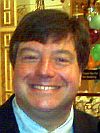

Family treatments have the greatest research support of any psychological treatment for bipolar disorder. This talk will briefly review research showing why it is important to get families involved and discuss specific family treatments that have been shown to be helpful for adolescents and adults with bipolar disorder.
Irwin S. Rosenfarb, Ph.D. is a Professor in the Clinical Psychology Ph.D. program at CSPP/Alliant International University in San Diego. His teaching, research, and clinical interests focus on psychological treatments for individuals with severe psychopathology. He was the Principal Investigator on a NIMH research grant and has over 100 publications and presentations on schizophrenia, bipolar disorder, and depression.
The PowerPoint slides of Dr. Rosenfarb's presentation were briefly available online but were subsequently removed due to potential copyright problems. You can, however, email him directly, at irosenfa@alliant.edu, for a copy of the slides. Also, see Dr. Rosenfarb's list of Books about Bipolar Disorder for Individuals and Families.
Irwin S. Rosenfarb, Ph.D. is a Professor in the Clinical Psychology Ph.D. program at CSPP/Alliant International University in San Diego. His teaching, research, and clinical interests focus on psychological treatments for individuals with severe psychopathology. He was the Principal Investigator on a NIMH research grant and has over 100 publications and presentations on schizophrenia, bipolar disorder, and depression.
The PowerPoint slides of Dr. Rosenfarb's presentation were briefly available online but were subsequently removed due to potential copyright problems. You can, however, email him directly, at irosenfa@alliant.edu, for a copy of the slides. Also, see Dr. Rosenfarb's list of Books about Bipolar Disorder for Individuals and Families.
Monday, 02 May 2011 6:00pm - 8:00pm
John R. Kelsoe, M.D.


Genes explain a large portion of the cause of bipolar disorder. Recent scientific advances have provided powerful new tools to understand the genetics of bipolar disorder. Identifying the genes that cause bipolar disorder will lead to new methods of diagnosis and new forms of treatment.
John R. Kelsoe, M.D.
Professor of Psychiatry and Director, Laboratory of Psychiatric Genomics
University of California, San Diego, La Jolla, California
Director, STEP Clinical Research Center
Veterans Affairs San Diego Healthcare System, San Diego, California
Research Focus: Dr. Kelsoe's longstanding research focus has been the genetics of psychiatric illness, bipolar disorder in particular. As the director of the Laboratory of Psychiatric Genomics at the University of California, San Diego, his work has focused on using a variety of molecular genetic methods to identify the specific genes that predispose to bipolar disorder. He has pursued this primarily by using positional cloning methods such as linkage and association in families in which the illness is genetically transmitted. He has also employed animal models of bipolar disorder in order to identify possible candidate genes that can then be tested in clinical populations. This approach has led to the identification of the gene for G protein receptor kinase 3 (GRK3) as a likely gene for bipolar disorder on chromosome 22. Dr. Kelsoe is currently actively engaged in genome wide association studies of bipolar disorder. He directs the Bipolar Genome Study (BiGS) which is a 13-site consortium focused on identifying genes for bipolar disorder and their relationship to clinical symptoms. He also co-directs the Psychiatric GWAS Consortium for Bipolar Disorder (PGC-BD) which is an international collaborative effort designed to identify genes for bipolar disorder in a sample of over ten thousand patients. These large new technological approaches promise great advances in understanding the causes of bipolar disorder.
Clinical Focus: Dr. Kelsoe's primary clinical focus is the treatment of refractory mood disorders. He is the Medical Director of the NIMH clinical research center Special Treatment and Evaluation Program (STEP) at the Veterans Affairs San Diego Healthcare System where he specializes in the treatment of chronic and refractory mood disorders. Patients at this clinic receive a thorough diagnostic evaluation and are eligible to participate in longitudinal research studies of the ability of genes to predict course, outcome, and treatment response.
John R. Kelsoe, M.D.
Professor of Psychiatry and Director, Laboratory of Psychiatric Genomics
University of California, San Diego, La Jolla, California
Director, STEP Clinical Research Center
Veterans Affairs San Diego Healthcare System, San Diego, California
Research Focus: Dr. Kelsoe's longstanding research focus has been the genetics of psychiatric illness, bipolar disorder in particular. As the director of the Laboratory of Psychiatric Genomics at the University of California, San Diego, his work has focused on using a variety of molecular genetic methods to identify the specific genes that predispose to bipolar disorder. He has pursued this primarily by using positional cloning methods such as linkage and association in families in which the illness is genetically transmitted. He has also employed animal models of bipolar disorder in order to identify possible candidate genes that can then be tested in clinical populations. This approach has led to the identification of the gene for G protein receptor kinase 3 (GRK3) as a likely gene for bipolar disorder on chromosome 22. Dr. Kelsoe is currently actively engaged in genome wide association studies of bipolar disorder. He directs the Bipolar Genome Study (BiGS) which is a 13-site consortium focused on identifying genes for bipolar disorder and their relationship to clinical symptoms. He also co-directs the Psychiatric GWAS Consortium for Bipolar Disorder (PGC-BD) which is an international collaborative effort designed to identify genes for bipolar disorder in a sample of over ten thousand patients. These large new technological approaches promise great advances in understanding the causes of bipolar disorder.
Clinical Focus: Dr. Kelsoe's primary clinical focus is the treatment of refractory mood disorders. He is the Medical Director of the NIMH clinical research center Special Treatment and Evaluation Program (STEP) at the Veterans Affairs San Diego Healthcare System where he specializes in the treatment of chronic and refractory mood disorders. Patients at this clinic receive a thorough diagnostic evaluation and are eligible to participate in longitudinal research studies of the ability of genes to predict course, outcome, and treatment response.
Monday, 07 March 2011 6:00pm - 8:00pm
Hagop S. Akiskal, M.D.
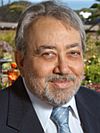

This lecture, presented in an interactive format, will discuss a treatment approach developed by Hagop and Kareen Akiskal, which derives from their clinical experience with bipolar patients and their families over the past thirty-five years, in the United States, Europe, and Latin America.
Hagop S. Akiskal is presently Distinguished Professor of Psychiatry and Director of the International Mood Center at the University of California, San Diego. He is Editor-in-Chief of the Journal of Affective Disorders. Previously, he was Senior Science Advisor to the the Director of the National Institute of Mental Health. Earlier, he was Professor of Psychiatry and Pharmacology at the University of Tennessee, Memphis, where he had established one of the earliest mood clinics in this country (1973).
Dr. Akiskal is the author of over 400 publications on dysthymia, chronic depressions, bipolar spectrum disorder and its comorbidities. He is the recipient of many prizes for his clinical research on affective disorders, including the Gold Medal for Pioneer Research (Society of Biological Psychiatry), the German Anna Monika Prize for Depression, the NARSAD Prize for Affective Disorders, and the Jean Delay Prize of the World Psychiatric Association. Together with Kareen Akiskal, the couple has been intimately involved in the establishment of the first international advocacy organization for the mentally ill (Venice), and the French Manic Depressive Association. Dr. Akiskal has served on the national advisory board on the precursor of the DBSA, the National Depressive and Manic-Depressive Association.
Hagop S. Akiskal is presently Distinguished Professor of Psychiatry and Director of the International Mood Center at the University of California, San Diego. He is Editor-in-Chief of the Journal of Affective Disorders. Previously, he was Senior Science Advisor to the the Director of the National Institute of Mental Health. Earlier, he was Professor of Psychiatry and Pharmacology at the University of Tennessee, Memphis, where he had established one of the earliest mood clinics in this country (1973).
Dr. Akiskal is the author of over 400 publications on dysthymia, chronic depressions, bipolar spectrum disorder and its comorbidities. He is the recipient of many prizes for his clinical research on affective disorders, including the Gold Medal for Pioneer Research (Society of Biological Psychiatry), the German Anna Monika Prize for Depression, the NARSAD Prize for Affective Disorders, and the Jean Delay Prize of the World Psychiatric Association. Together with Kareen Akiskal, the couple has been intimately involved in the establishment of the first international advocacy organization for the mentally ill (Venice), and the French Manic Depressive Association. Dr. Akiskal has served on the national advisory board on the precursor of the DBSA, the National Depressive and Manic-Depressive Association.
Monday, 10 January 2011 6:00pm - 8:00pm
Amanda Gutierrez, Psy.D.
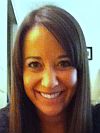

Effective emotion regulation includes the ability to recognize that you are having an emotional response, understand what the emotional response is, and accept your emotional responses (rather than reject or react to them). Dr. Gutierrez will discuss the basic concepts of emotion regulation, skills to assist in regulating emotions effectively, and the relationship between emotion dysregulation and self-harm behaviors.
Amanda Gutierrez is a licensed clinical psychologist who earned her doctoral degree, in clinical psychology with a family emphasis, from Azusa Pacific University in 2009. She has received intensive training in DBT at the Outpatient DBT Programs at Harbor UCLA Medical Center. She also received intensive training in evidence-based treatments for severe depression, anxiety, and other problems related to emotion dysregulation. She completed her post-doctoral fellowship at Sharp Mesa Vista Hospital in their Cognitive and DBT Intensive Outpatient Programs.
Dr. Gutierrez is an adjunct professor in the Marriage and Family Therapy program at the University of San Diego, of which she is also an alumna. She continues to hold a psychologist position at Sharp Mesa Vista Hospital and is a staff psychologist at the DBT Center of San Diego. Dr. Gutierrez has experience treating children, adolescents, adults, seniors, and their families.
The slides from Dr. Gutierrez's presentation are now available online here.
Amanda Gutierrez is a licensed clinical psychologist who earned her doctoral degree, in clinical psychology with a family emphasis, from Azusa Pacific University in 2009. She has received intensive training in DBT at the Outpatient DBT Programs at Harbor UCLA Medical Center. She also received intensive training in evidence-based treatments for severe depression, anxiety, and other problems related to emotion dysregulation. She completed her post-doctoral fellowship at Sharp Mesa Vista Hospital in their Cognitive and DBT Intensive Outpatient Programs.
Dr. Gutierrez is an adjunct professor in the Marriage and Family Therapy program at the University of San Diego, of which she is also an alumna. She continues to hold a psychologist position at Sharp Mesa Vista Hospital and is a staff psychologist at the DBT Center of San Diego. Dr. Gutierrez has experience treating children, adolescents, adults, seniors, and their families.
The slides from Dr. Gutierrez's presentation are now available online here.
Monday, 06 December 2010 6:00pm - 8:00pm
John Lohrman
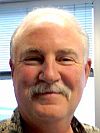

John will provide an overview of insurance programs (including eligibility and benefits) that are currently available for people with pre-existing medical conditions. He will also explain how the new healthcare reform affects consumers. There will be time for a question-and-answer period at the end. This lecture will include information on Medicare but not on Medi-Cal.
John Lohrman grew up in Omaha, Nebraska and graduated from Central High School in 1967. He attended the University of Texas in Austin and shortly thereafter moved to Houston and established his own sales rep firm selling housewares, small appliances and electronics. While in Houston, John always had the love of adventure and he got his private pilots license. He played rugby for the Houston Rugby Club and in 1977 formed Texas River Expeditions, a whitewater rafting company. Because of his concerns for his customers' safety, John got his EMT/Paramedic training from Cypress Creek Ambulance Service so he would be able to handle any emergency that might occur during the wilderness river adventures. His river company appeared on television many times for P.M. Magazine and National Geographic.
John married his beautiful wife Linda in 1980 while a hurricane was bearing down on Houston. His love for helping people brought him to San Diego in 1986, and in 1989 he formed California HealthQuote Insurance Services. He has been a top ten producer out of 30,000 agents in California for Anthem Blue Cross. John also serves on the agent advisory council for Anthem Blue Cross, Blue Shield of California, and HealthNet of California.
Mr. Lohrman does volunteer work for the Cancer Lymphoma Society to help their patients with their medical rights to purchase insurance. He also does volunteer work for the Ronald MacDonald House and takes children cancer survivors on river trips into Texas with the help of Southwest Airlines. John is on the Health and Wellness Foundation for Tri-City Hospital and he teaches the A, B, C, and part D's of Medicare at their Wellness seminars. John has been an independent broker for 23 years and is an expert witness for the insurance industry and a Senior Medicare Specialist.
John Lohrman grew up in Omaha, Nebraska and graduated from Central High School in 1967. He attended the University of Texas in Austin and shortly thereafter moved to Houston and established his own sales rep firm selling housewares, small appliances and electronics. While in Houston, John always had the love of adventure and he got his private pilots license. He played rugby for the Houston Rugby Club and in 1977 formed Texas River Expeditions, a whitewater rafting company. Because of his concerns for his customers' safety, John got his EMT/Paramedic training from Cypress Creek Ambulance Service so he would be able to handle any emergency that might occur during the wilderness river adventures. His river company appeared on television many times for P.M. Magazine and National Geographic.
John married his beautiful wife Linda in 1980 while a hurricane was bearing down on Houston. His love for helping people brought him to San Diego in 1986, and in 1989 he formed California HealthQuote Insurance Services. He has been a top ten producer out of 30,000 agents in California for Anthem Blue Cross. John also serves on the agent advisory council for Anthem Blue Cross, Blue Shield of California, and HealthNet of California.
Mr. Lohrman does volunteer work for the Cancer Lymphoma Society to help their patients with their medical rights to purchase insurance. He also does volunteer work for the Ronald MacDonald House and takes children cancer survivors on river trips into Texas with the help of Southwest Airlines. John is on the Health and Wellness Foundation for Tri-City Hospital and he teaches the A, B, C, and part D's of Medicare at their Wellness seminars. John has been an independent broker for 23 years and is an expert witness for the insurance industry and a Senior Medicare Specialist.
Monday, 01 November 2010 6:00pm - 8:00pm
Lisa Falls, MFA, MPS, ATR-BC
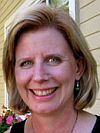

While encouraging all to use their innate creativity, Lisa will guide participants through an art experience using simple materials to explore their past, present and future, then open a discussion of what individuals have seen and learned in the process.
Lisa Falls is an artist and is a Registered, Board-Certified Art Therapist with the Art Therapy Credentials Board. Lisa has utilized art therapy for treating mood disorders in various settings, both with groups and individuals. She is the Program Coordinator and instructor for the UCSD Extension Specialized Certificate in Therapeutic Uses of Art. Lisa facilitates an Art Expressions group at Sunrise Senior Living at La Costa, as well as running a Memories in the Making group through the Alzheimer's Association. She facilitates an art therapy Cancer Survivor support group through Sharp Healthcare's Arts for Healing Program.
Lisa Falls is an artist and is a Registered, Board-Certified Art Therapist with the Art Therapy Credentials Board. Lisa has utilized art therapy for treating mood disorders in various settings, both with groups and individuals. She is the Program Coordinator and instructor for the UCSD Extension Specialized Certificate in Therapeutic Uses of Art. Lisa facilitates an Art Expressions group at Sunrise Senior Living at La Costa, as well as running a Memories in the Making group through the Alzheimer's Association. She facilitates an art therapy Cancer Survivor support group through Sharp Healthcare's Arts for Healing Program.
Monday, 13 September 2010 6:00pm - 8:00pm
Philip Botkiss, M.D.
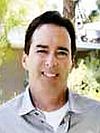

A New Frontier in Brain Stimulation Treatment
Dr. Botkiss will be discussing a new FDA-approved treatment for depression called transcranial magnetic stimulation (TMS) which is an alternative to medication and ECT. He will talk about the theory behind TMS, how it works, review the studies that led to FDA approval, and discuss where TMS fits into a treatment plan for management of treatment-resistant depression. He will also provide a brief update on the use of ECT as an alternative treatment as well.
Philip Botkiss is a board-certified Clinical Psychiatrist who has been in private practice in San Diego for over twenty years. He specializes in the treatment of mood disorders in both outpatient and hospital-based settings. In addition to his practice, he is a Clinical Director at Sharp Mesa Vista Hospital and a Clinical Instructor at the University of California, San Diego.
Philip Botkiss is a board-certified Clinical Psychiatrist who has been in private practice in San Diego for over twenty years. He specializes in the treatment of mood disorders in both outpatient and hospital-based settings. In addition to his practice, he is a Clinical Director at Sharp Mesa Vista Hospital and a Clinical Instructor at the University of California, San Diego.
Monday, 02 August 2010 6:00pm - 8:00pm
Jim Hatton, Ph.D., M.F.T.
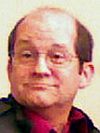

Dr. Hatton will speak about compulsive hoarding and its relationship to obsessive-compulsive disorder.
Jim Hatton began his professional life by getting his Ph.D. in Neuroscience, and did research as a faculty member at UCSD for almost thirteen years. To integrate his brain science background with an interest in clinical counseling, he added a Masters degree in counseling and began treating clients with Obsessive-Compulsive Disorder (OCD) in 1991. Since 1994 he has specialized in the behavioral treatment of OCD in children and adults from his private practice in San Diego, and training other clinicians by supervising at the UCSD OCD Clinic.
The complete text of Dr. Hatton's presentation is now available online here. This is a PDF file and should be viewable and printable by most computer users. See also his Hoarding Resource List.
Jim Hatton began his professional life by getting his Ph.D. in Neuroscience, and did research as a faculty member at UCSD for almost thirteen years. To integrate his brain science background with an interest in clinical counseling, he added a Masters degree in counseling and began treating clients with Obsessive-Compulsive Disorder (OCD) in 1991. Since 1994 he has specialized in the behavioral treatment of OCD in children and adults from his private practice in San Diego, and training other clinicians by supervising at the UCSD OCD Clinic.
The complete text of Dr. Hatton's presentation is now available online here. This is a PDF file and should be viewable and printable by most computer users. See also his Hoarding Resource List.
Monday, 07 June 2010 6:00pm - 8:00pm
Milton Brown, Ph.D.
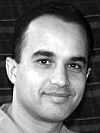
Alexandria Murallo, Ph.D.


Alexandria Murallo, Ph.D.

Dialectical Behavior Therapy (DBT) is an evidence-based, cognitive- behavioral treatment developed for people with serious problems with emotions, many of whom have chronic suicidal and self-injurious behaviors and Borderline Personality Disorder. DBT incorporates virtually every CBT strategy found to be effective in helping people change their emotions and behaviors, including many strategies borrowed from other therapy approaches. This lecture will review and demonstrate a variety of DBT skills for emotion regulation. We will present several new coping skills that effectively help clients improve their emotion functioning by changing the activity of the autonomic nervous system.
Dr. Brown is currently the director of the Dialectical Behavior Therapy Center of San Diego and an associate professor in the clinical psychology Ph.D. Program at the California School of Professional Psychology (Alliant International University) in San Diego. His research and clinical work focuses on 1) chronic self-injury and parasuicide, 2) Dialectical Behavior Therapy for borderline personality disorder, 3) emotion regulation strategies, 4) exposure and opposite action therapies, and 5) shame and its treatment. He has published primarily on the psychopathology and treatment of borderline personality disorder and suicidal behaviors.
Dr. Murallo received a Ph.D. in clinical psychology from Seattle Pacific University in 2009. She has worked in primary care, counseling centers, and in private practice conducting individual, group, family, and couples psychotherapy. She has specialized training in health psychology, and has considerable experience treating mood disorders, anxiety disorders, and eating disorders. She is currently registered in the state of California as a psychological assistant (PSB 34877), but is not yet licensed in California. Her clinical work is supervised by Drs. Milton Brown and Lisa Campbell.
The PowerPoint slides used for the presentation are now available online here. This is a PDF file generated from Dr. Brown's PowerPoint file, and should be viewable and printable by most computer users. For those so inclined, the actual PowerPoint file is also available; please email the webmaster if you are interested in obtaining it.
Dr. Brown is currently the director of the Dialectical Behavior Therapy Center of San Diego and an associate professor in the clinical psychology Ph.D. Program at the California School of Professional Psychology (Alliant International University) in San Diego. His research and clinical work focuses on 1) chronic self-injury and parasuicide, 2) Dialectical Behavior Therapy for borderline personality disorder, 3) emotion regulation strategies, 4) exposure and opposite action therapies, and 5) shame and its treatment. He has published primarily on the psychopathology and treatment of borderline personality disorder and suicidal behaviors.
Dr. Murallo received a Ph.D. in clinical psychology from Seattle Pacific University in 2009. She has worked in primary care, counseling centers, and in private practice conducting individual, group, family, and couples psychotherapy. She has specialized training in health psychology, and has considerable experience treating mood disorders, anxiety disorders, and eating disorders. She is currently registered in the state of California as a psychological assistant (PSB 34877), but is not yet licensed in California. Her clinical work is supervised by Drs. Milton Brown and Lisa Campbell.
The PowerPoint slides used for the presentation are now available online here. This is a PDF file generated from Dr. Brown's PowerPoint file, and should be viewable and printable by most computer users. For those so inclined, the actual PowerPoint file is also available; please email the webmaster if you are interested in obtaining it.
Monday, 03 May 2010 6:00pm - 8:00pm
Steve Stover, M.S.
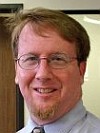

Learn how SSI and SSDI benefits are affected when you return to work, and how to use the work incentives and supports that are available to you.
Steve Stover has served the disabled population over the past 25 years along with many other special needs populations. His work history consists of working within San Diego County as a Rehabilitation Counselor, Program Manager, Job Developer, Lead Disability Program Navigator (One-Stop Career Centers), Independent Consultant/Trainer and Individual Service Provider (Dept of Rehab). He is certified through Social Security Administration (SSA) as a Disability Benefits Planner and is currently working for Project Independence (P-I) as the Community Work Incentives Coordinator (CWIC) for all of San Diego County.
Steve Stover has served the disabled population over the past 25 years along with many other special needs populations. His work history consists of working within San Diego County as a Rehabilitation Counselor, Program Manager, Job Developer, Lead Disability Program Navigator (One-Stop Career Centers), Independent Consultant/Trainer and Individual Service Provider (Dept of Rehab). He is certified through Social Security Administration (SSA) as a Disability Benefits Planner and is currently working for Project Independence (P-I) as the Community Work Incentives Coordinator (CWIC) for all of San Diego County.
Monday, 01 March 2010 6:00pm - 7:30pm
Rafael M. Reyes, Psy.D.
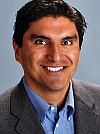

Using Cognitive Therapy Tools to Prepare for the Expected
Please join Dr. Reyes for a discussion on how to use basic and simple cognitive therapy techniques to prepare for life's everyday obstacles. In life there is so much we face that we cannot prepare for, we might as well prepare for what we can! We tend to prepare for the big challenges in life (most times) but fail to prepare for daily changes which often leads to feelings of being buried under insurmountable obstacles. Using simple cognitive techniques can help us be prepared for the expected, but often ignored, challenges in life thus leading to a stronger sense of stability and control.
Dr. Reyes will explain how some simple changes to our thinking can help us deal with challenges and reduce the anxiety and negative impact stress has on our lives. He will also explain how simple behavioral changes can help regain control when faced with increasingly chaotic obstacles. The ultimate goal of this presentation will be to empower the audience to Get Ready for the daily challenges they face and avoid getting buried in stress!
Dr. Reyes will be available after the presentation to answer questions.
Rafael M. Reyes, Psy.D., is a licensed clinical psychologist and co-founder of PsychSanDiego. He works with both adults and children and specializes in treating depression and bipolar disorders, anxiety disorders, and behavioral disorders in children and adolescents.
For further information about Dr. Reyes, visit http://www.psychsandiego.org/about.htm.
The PowerPoint slides used for the presentation are now available online here. This is a PDF file generated from Dr. Reyes's PowerPoint file, and should be viewable and printable by most computer users. For those so inclined, the actual PowerPoint file is also available; please email the webmaster if you are interested in obtaining it.
Dr. Reyes will explain how some simple changes to our thinking can help us deal with challenges and reduce the anxiety and negative impact stress has on our lives. He will also explain how simple behavioral changes can help regain control when faced with increasingly chaotic obstacles. The ultimate goal of this presentation will be to empower the audience to Get Ready for the daily challenges they face and avoid getting buried in stress!
Dr. Reyes will be available after the presentation to answer questions.
Rafael M. Reyes, Psy.D., is a licensed clinical psychologist and co-founder of PsychSanDiego. He works with both adults and children and specializes in treating depression and bipolar disorders, anxiety disorders, and behavioral disorders in children and adolescents.
For further information about Dr. Reyes, visit http://www.psychsandiego.org/about.htm.
The PowerPoint slides used for the presentation are now available online here. This is a PDF file generated from Dr. Reyes's PowerPoint file, and should be viewable and printable by most computer users. For those so inclined, the actual PowerPoint file is also available; please email the webmaster if you are interested in obtaining it.
Monday, 05 October 2009 6:00pm - 7:30pm
Jim Hatton, Ph.D., M.F.T.
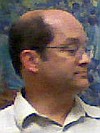

Dr. Hatton will be presenting an introduction to Obsessive Compulsive Disorder (OCD) and related OC spectrum disorders.
Jim Hatton was born back in the Age of Nicknames, and is actually an avatar for his operator, James. Jim was created in the basement lab of the Theoretical Humor building at the University of Altoona. He was removed from the home in his teen years for the protection of the consuming public, and was placed in the W. C. Fields Home for Annoying Children. It was there that he met the woman who would be a guiding force for most of his life – his mother.
After being begged by the high school principal to leave school early, Jim graduated summa cum loudly from Michigan State University where he majored in Animal Husbandry (until they caught him at it one day), finally achieving his Ph.D. (phony doctorate) in Psychology and Neuroscience from UCSD. He has run the same support group for people with OCD for the last 18 years and still hasn't gotten it right. Today's talk marks the culmination of his backward slide into obscurity. When not otherwise occupied, Jim runs the San Diego Regional Program for Obsessive Compulsive Disorders and Trichotillomania.
The complete text of Dr. Hatton's presentation is now available online here. This is a PDF file and should be viewable and printable by most computer users.
Jim Hatton was born back in the Age of Nicknames, and is actually an avatar for his operator, James. Jim was created in the basement lab of the Theoretical Humor building at the University of Altoona. He was removed from the home in his teen years for the protection of the consuming public, and was placed in the W. C. Fields Home for Annoying Children. It was there that he met the woman who would be a guiding force for most of his life – his mother.
After being begged by the high school principal to leave school early, Jim graduated summa cum loudly from Michigan State University where he majored in Animal Husbandry (until they caught him at it one day), finally achieving his Ph.D. (phony doctorate) in Psychology and Neuroscience from UCSD. He has run the same support group for people with OCD for the last 18 years and still hasn't gotten it right. Today's talk marks the culmination of his backward slide into obscurity. When not otherwise occupied, Jim runs the San Diego Regional Program for Obsessive Compulsive Disorders and Trichotillomania.
The complete text of Dr. Hatton's presentation is now available online here. This is a PDF file and should be viewable and printable by most computer users.
Monday, 03 August 2009 6:00pm - 7:30pm
David M. Reiss, M.D.
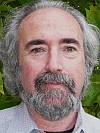

Dr. Reiss will be speaking about the development of Borderline-spectrum issues and behaviors, and differentiating those phenomena from bipolar symptomatology.
David M. Reiss, M.D. (DMRDynamics) is a psychiatrist in private practice based in San Diego, with offices in Fresno, Palm Springs and Ontario, Canada. Dr. Reiss specializes in evaluation and treatment of characterological disorders, and applying personality theory to non-clinical areas (business/workplace, education, socio-political issues, sports/entertainment, etc.).
Dr. Reiss is available for clinical consultation and treatment, including both psychotherapeutic and psychopharmacological intervention, as well as non-clinical consultation regarding characterological dynamics which arise in other milieu. He can be reached by email at <dmr@dmrdynamics.com>.
David M. Reiss, M.D. (DMRDynamics) is a psychiatrist in private practice based in San Diego, with offices in Fresno, Palm Springs and Ontario, Canada. Dr. Reiss specializes in evaluation and treatment of characterological disorders, and applying personality theory to non-clinical areas (business/workplace, education, socio-political issues, sports/entertainment, etc.).
Dr. Reiss is available for clinical consultation and treatment, including both psychotherapeutic and psychopharmacological intervention, as well as non-clinical consultation regarding characterological dynamics which arise in other milieu. He can be reached by email at <dmr@dmrdynamics.com>.
Monday, 01 June 2009 6:00pm - 7:30pm
John Lohrman


John Lohrman will be speaking about private health insurance and Medicare, a topic with too many questions and too few answers. John is the guy with the answers!
John Lohrman grew up in Omaha, Nebraska and graduated from Central High School in 1967. He attended the University of Texas in Austin and shortly thereafter moved to Houston and established his own sales rep firm selling housewares, small appliances and electronics. While in Houston, John always had the love of adventure and he got his private pilots license. He played rugby for the Houston Rugby Club and in 1977 formed Texas River Expeditions, a whitewater rafting company. Because of his concerns for his customers' safety, John got his EMT/Paramedic training from Cypress Creek Ambulance Service so he would be able to handle any emergency that might occur during the wilderness river adventures. His river company appeared on television many times for P.M. Magazine and National Geographic.
John married his beautiful wife Linda in 1980 while a hurricane was bearing down on Houston. His love for helping people brought him to San Diego in 1986, and in 1989 he formed California HealthQuote Insurance Services. He has been a top ten producer out of 30,000 agents in California for Anthem Blue Cross. John also serves on the agent advisory council for Anthem Blue Cross, Blue Shield of California, and HealthNet of California.
Mr. Lohrman does volunteer work for the Cancer Lymphoma Society to help their patients with their medical rights to purchase insurance. He also does volunteer work for the Ronald MacDonald House and takes children cancer survivors on river trips into Texas with the help of Southwest Airlines. John is on the Health and Wellness Foundation for Tri-City Hospital and he teaches the A, B, C, and part D's of Medicare at their Wellness seminars. John has been an independent broker for 23 years and is an expert witness for the insurance industry and a Senior Medicare Specialist.
John Lohrman grew up in Omaha, Nebraska and graduated from Central High School in 1967. He attended the University of Texas in Austin and shortly thereafter moved to Houston and established his own sales rep firm selling housewares, small appliances and electronics. While in Houston, John always had the love of adventure and he got his private pilots license. He played rugby for the Houston Rugby Club and in 1977 formed Texas River Expeditions, a whitewater rafting company. Because of his concerns for his customers' safety, John got his EMT/Paramedic training from Cypress Creek Ambulance Service so he would be able to handle any emergency that might occur during the wilderness river adventures. His river company appeared on television many times for P.M. Magazine and National Geographic.
John married his beautiful wife Linda in 1980 while a hurricane was bearing down on Houston. His love for helping people brought him to San Diego in 1986, and in 1989 he formed California HealthQuote Insurance Services. He has been a top ten producer out of 30,000 agents in California for Anthem Blue Cross. John also serves on the agent advisory council for Anthem Blue Cross, Blue Shield of California, and HealthNet of California.
Mr. Lohrman does volunteer work for the Cancer Lymphoma Society to help their patients with their medical rights to purchase insurance. He also does volunteer work for the Ronald MacDonald House and takes children cancer survivors on river trips into Texas with the help of Southwest Airlines. John is on the Health and Wellness Foundation for Tri-City Hospital and he teaches the A, B, C, and part D's of Medicare at their Wellness seminars. John has been an independent broker for 23 years and is an expert witness for the insurance industry and a Senior Medicare Specialist.
Monday, 06 April 2009 6:00pm - 7:30pm
Colin Depp, Ph.D.
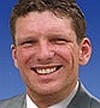

Colin Depp will review the prevalence, causes, and treatment options for several kinds of self-harm behaviors, which will include discussion of suicidal feelings, self-injury, and substance use problems. Emphasis will be put on self-harm in the context of mood disorders.
Colin A. Depp, Ph.D., is an Assistant Clinical Professor in the Department of Psychiatry at the School of Medicine of the University of California, San Diego (UCSD), and one of DBSA San Diego's three sponsors. He is also a Research Fellow at UCSD's Sam and Rose Stein Institute for Research on Aging. Dr. Depp received his bachelor's degree from the University of Michigan and his doctorate in clinical psychology from the University of Louisville. He then completed a pre-doctoral internship at the Palo Alto Veteran's Administration and a National Research Service Award post-doctoral fellowship in the Division of Geriatric Psychiatry at UCSD.
The PowerPoint slides used for the presentation are now available online here. This is a PDF file generated from Dr. Depp's PowerPoint file, and should be viewable and printable by most computer users. For those so inclined, the actual PowerPoint file is also available; please email the webmaster if you are interested in obtaining it.
Colin A. Depp, Ph.D., is an Assistant Clinical Professor in the Department of Psychiatry at the School of Medicine of the University of California, San Diego (UCSD), and one of DBSA San Diego's three sponsors. He is also a Research Fellow at UCSD's Sam and Rose Stein Institute for Research on Aging. Dr. Depp received his bachelor's degree from the University of Michigan and his doctorate in clinical psychology from the University of Louisville. He then completed a pre-doctoral internship at the Palo Alto Veteran's Administration and a National Research Service Award post-doctoral fellowship in the Division of Geriatric Psychiatry at UCSD.
The PowerPoint slides used for the presentation are now available online here. This is a PDF file generated from Dr. Depp's PowerPoint file, and should be viewable and printable by most computer users. For those so inclined, the actual PowerPoint file is also available; please email the webmaster if you are interested in obtaining it.
Monday, 02 February 2009 6:00pm - 7:30pm
Rafael M. Reyes, Psy.D.


Note: Rafael Reyes gave this presentation instead of Alessandra Wall, due to an unexplected scheduling conflict. Dr. Reyes also gave the previous month's presentation.
Alessandra Wall will speak about anxiety - its origin, its symptoms, and its treatment - with emphasis on relaxation and cognitive-behavioral techniques for managing anxiety. Although this is a continuation of the previous month's lecture, it is not necessary to have seen Part One to appreciate Part Two.
Alessandra Wall, Ph.D., is a licensed clinical psychologist and co-founder of PsychSanDiego. She specializes in treating anxiety disorders, depression and bipolar disorder, eating disorders, and childhood behavioral problems.
For further information about Dr. Wall, visit her on the Web at http://www.psychsandiego.org/about.htm.
Alessandra Wall will speak about anxiety - its origin, its symptoms, and its treatment - with emphasis on relaxation and cognitive-behavioral techniques for managing anxiety. Although this is a continuation of the previous month's lecture, it is not necessary to have seen Part One to appreciate Part Two.
Alessandra Wall, Ph.D., is a licensed clinical psychologist and co-founder of PsychSanDiego. She specializes in treating anxiety disorders, depression and bipolar disorder, eating disorders, and childhood behavioral problems.
For further information about Dr. Wall, visit her on the Web at http://www.psychsandiego.org/about.htm.
Part II Summary:
Dr. Wall will discuss the biological basis of the anxiety response, focusing on the biochemical effects and impact of anxiety on short- and long-term body functioning. She will also introduce the notion of a relaxation response and discuss how this operates at a biological level and how to produce it. Finally she will share some information on basic breathing and relaxation techniques that can help produce and strengthen the relaxation response in anxious and non-anxious persons.
- The biological basis of anxiety
- What is stress?
- How does it affect your body in the short term?
- The impact of chronic stress on the body
- The relaxation response
- What is involved in the relaxation response?
- Basic principles of deep breathing and relaxation
- Introduction to relaxation techniques including deep breathing, progressive muscle relaxation, imagery, meditation.
- Live relaxation training (45 minutes)
Monday, 05 January 2009 6:00pm - 7:30pm
Rafael M. Reyes, Psy.D.


Rafael Reyes will speak about anxiety - its origin, its symptoms, and its treatment - with emphasis on relaxation and cognitive-behavioral techniques for managing anxiety.
Rafael M. Reyes, Psy.D., is a licensed clinical psychologist and co-founder of PsychSanDiego. He works with both adults and children and specializes in treating depression and bipolar disorders, anxiety disorders, and behavioral disorders in children and adolescents.
For further information about Dr. Reyes, visit him on the Web at http://www.psychsandiego.org/about.htm.
Rafael M. Reyes, Psy.D., is a licensed clinical psychologist and co-founder of PsychSanDiego. He works with both adults and children and specializes in treating depression and bipolar disorders, anxiety disorders, and behavioral disorders in children and adolescents.
For further information about Dr. Reyes, visit him on the Web at http://www.psychsandiego.org/about.htm.
Part I Summary:
Dr. Reyes will discuss the causes and triggers of anxiety from a cognitive therapy perspective. He will discuss how anxiety is a natural emotion and becomes problematic depending on the thoughts that perpetuate it. He will help identify how our perceived lack of control can increase anxiety and taking control of our thought and some of our behaviors can help reduce anxiety. Dr. Reyes will also share techniques that can help us gain control of our anxiety and lead to a more productive life.
- The cognitive model of anxiety
- Symptoms of anxiety
- Distorted thoughts that lead to anxiety
- Relationship between danger and control
- Gaining control of anxiety
- Decatastrophizing, Distraction, and Exposure
- Systematic desensitization
- Other techniques to control anxiety
Monday, 03 November 2008 6:00pm - 7:30pm
Henry Petersen,
L.C.S.W., Sharp Mesa Vista Hospital, San Diego
L.C.S.W., Sharp Mesa Vista Hospital, San Diego
Henry Petersen will speak about holiday stress and families, the difference between this and SAD (Seasonal Affective Disorder), and coping with holiday stress.
Henry Petersen is an LCSW (Licensed Clinical Social Worker). He has been with Sharp Mesa Vista Hospital for over nine years, and has been specifically working with the Mood Disorders Program - based on the Cognitive Behavioral model of therapy - for over six years. Beginning nearly six years ago he developed, and has been facilitating, a weekly Mood Disorders Support Group, an educational and process group. The group members comprise both diagnosed persons ("consumers") as well as family members and friends. He has been a guest speaker for DBSA and NAMI.
Henry Petersen is an LCSW (Licensed Clinical Social Worker). He has been with Sharp Mesa Vista Hospital for over nine years, and has been specifically working with the Mood Disorders Program - based on the Cognitive Behavioral model of therapy - for over six years. Beginning nearly six years ago he developed, and has been facilitating, a weekly Mood Disorders Support Group, an educational and process group. The group members comprise both diagnosed persons ("consumers") as well as family members and friends. He has been a guest speaker for DBSA and NAMI.
Wednesday, 08 October 2008 7:00pm - 9:00pm
David Granirer,
Founder/Counselor, Author and Stand-Up Comic

Founder/Counselor, Author and Stand-Up Comic

David Granirer, author of The Happy Neurotic: How Fear and Angst Can Lead To Happiness and Success, will entertain you with his stand-up comedy act on the lighter side of mental health and talk about his Stand Up for Mental Health program, where he teaches stand-up comedy to people with mental illness as a way of building confidence and self-esteem.
He will also screen Cracking Up, the VOICE Award-winning documentary on Stand Up for Mental Health, and do some Q&A. And he'll talk about how doing comedy helps in the recovery process!
This is a special joint presentation of DBSA San Diego and Sharp Mesa Vista Hospital. Note the special date and time above. The location is also special: David's presentation will take place in the gymnasium of Sharp Mesa Vista Hospital, in Kearny Mesa, 7850 Vista Hill Avenue, San Diego, California 92123-2790.
For further information about David Granirer, visit him on the Web at http://www.standupformentalhealth.com/.
He will also screen Cracking Up, the VOICE Award-winning documentary on Stand Up for Mental Health, and do some Q&A. And he'll talk about how doing comedy helps in the recovery process!
This is a special joint presentation of DBSA San Diego and Sharp Mesa Vista Hospital. Note the special date and time above. The location is also special: David's presentation will take place in the gymnasium of Sharp Mesa Vista Hospital, in Kearny Mesa, 7850 Vista Hill Avenue, San Diego, California 92123-2790.
For further information about David Granirer, visit him on the Web at http://www.standupformentalhealth.com/.
Monday, 04 August 2008 6:00pm - 7:30pm
Michael T. Lardon, M.D.
Sport psychiatrist, psychopharmacologist, physician, mental coach, and author

Sport psychiatrist, psychopharmacologist, physician, mental coach, and author

This talk will address what techniques and concepts elite athletes use in helping themselves perform their best in intense competition. The presentation will last about 45 minutes. Dr. Lardon will show actual case vignettes of Olympians that illustrates these concepts. Afterwards he will open a discussion on how these concepts can help the everyday man and woman in their daily lives.
Dr. Michael T. Lardon is a University of California, San Diego Associate Clinical Professor of Psychiatry who specializes in general psychiatry, psychopharmacology and performance enhancement. He is author of Finding Your Zone: Ten Core Lessons for Achieving Peak Performance in Sports and Life. He provides services to PGA Tour and Olympic athletes. He holds a psychology degree from Stanford University, a medical degree from the University of Texas Medical Branch in Galveston, Texas, and internal medicine training from St. Mary's Hospital in Long Beach, California (a UCLA-affiliated program). His research in Athletic Peak Performance won UCSD's prestigious Judd award.
Dr. Lardon is published in both academic and lay press. He has been interviewed frequently by both print and television media: USA Today, Active Cities, Golf Magazine, Gold World, Sports Illustrated, Court TV, and CNN. His own interest in sports began when he became a United States Junior table tennis champion. During his psychiatry residency training he caddied for his brother, Brad Lardon, in the PGA Q School finals, an infamous experience well-chronicled by sports writer John Feinstein in his book, A Good Walk Spoiled.
To quote Dr. Lardon: "This is a very exciting time in the field of sport psychiatry because of the tremendous advancements in neuroscience. It is the integration of research and clinical expertise that allows me to help facilitate performance in my clients. I now utilize everything from cognitive-behavioral strategies, medicine, hypnosis, psychotherapy, performance enhancement techniques and common sense. I feel very fortunate to have a profession that grew out of my life's experience and draws on the latest scientific breakthroughs in the field of neuroscience."
For further information, visit Dr. Lardon on the Web at http://www.DrLardon.com/.
Monday, 07 July 2008 6:00pm - 8:00pm
Michael Coleman,
Certified Laughter Yoga Teacher
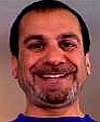
Certified Laughter Yoga Teacher

Come learn about and experience The Healing Power of Laughter through Laughter Yoga. Laughter Yoga has many benefits including physical, emotional, and social. Some of the most immediate and powerful benefits are a decrease in anxiety and stress and an overall sense of well-being. Laughter Yoga is not physical yoga and everyone can do it! No yoga mat or special clothing is required. Laughter Yoga is a worldwide grass roots movement where people gather in a group and laugh without jokes or even a sense of humor by cultivating a childlike playfulness that results in genuine laughter. There are over 6000 Laughter Clubs worldwide including in the U.S. (ten Laughter Clubs meet weekly in San Diego County), Canada, Europe, India, South Africa, Australia, China, Japan, and the Middle East.
Michael Coleman is a Certified Laughter Yoga Leader and Teacher, trained by Madan Kataria, M.D., the founder of Laughter Yoga. In addition to training people from all over the United States to be Laughter Yoga Leaders, Michael has led hundreds of laughter classes and currently leads weekly classes in many locations around San Diego. Some of the places at which Michael has presented laughter programs include Qualcomm, Law Offices, the Lions Club, University of San Diego, men's retreats, health fairs, community festivals and events, churches, yoga studios, senior residences and centers, and more.
In addition to being a Laughter Yoga Leader and Teacher, Michael received his Bachelors in Psychology from the University of Illinois and his law degree from the University of San Diego. Prior to becoming a licensed attorney, Michael worked as a mental health worker at Mesa Vista, Mercy and Grossmont Hospitals. As an attorney, Michael has advocated on behalf of persons diagnosed ? and misdiagnosed ? with depression, bipolar disorder and other serious mental illnesses. He was active in the mental health client advocacy movement in the late 1980s and 1990s and was involved in starting The Meeting Place, Clients and Others for Action, and other client-driven groups.
For more information on Michael, Laughter Yoga, and to view news stories about Michael and his Laughter Clubs that aired on ABC Channel 10 News, FOX Channel 6's San Diego Living, and Cox Cable Channel 4's San Diego Insider news magazine, visit http://www.LaughingInSanDiego.com/, phone him at 619.255.4622, or email him at <Michael@LaughingInSanDiego.com>.
Monday, 09 June 2008 6:00pm - 7:30pm
Sandy Balkenhol,
DBSA San Diego member
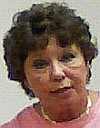
DBSA San Diego member

in Recovery from Bipolar Disorder and Depression
Sandy will present her story of illness and recovery from bipolar disorder. She has been a DBSA San Diego member for many years.
Unlike most of our presentations, this one will be held in Room 2011, the room we normally meet in at the start of our Monday meetings. Please do not go to the Garren Auditorium for this presentation. As usual, a support group will also be held at the same time, in Room 2113.
Special program note: Anyone planning to attend this presentation should prepare for it by reading the article entitled "Welcome to Max's World" http://www.newsweek.com/id/137517/ from the 26 May 2008 issue of Newsweek magazine. Additionally, the presentation will start promptly at 6:00pm and will run until about 7:30pm. There will be no late admissions, no early departures, no breaks, and no questions. We thank you in advance for your cooperation!
Monday, 05 May 2008 6:00pm - 7:30pm
Marc G. Murphy, Ph.D.,
Senior Therapist, Sharp Mesa Vista Hospital
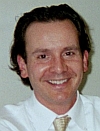
Senior Therapist, Sharp Mesa Vista Hospital

Critical CBT Tools in Group Therapy
Cognitive Therapy (Cognitive Behavioral Therapy, or CBT) has been shown to be the most effective method of treating depression. In this meeting we will discuss the ways in which CBT can successfully treat depression using the most important tools that help lead to remission and prevent relapse of depression. The presentation will also address how group therapy is especially effective for treating depression.
Dr. Murphy is a senior therapist with the Cognitive Intensive Outpatient Program (Cog-IOP) at San Diego's Sharp Mesa Vista Hospital.
The PowerPoint slides used for the presentation are now available online here. This is a PDF file generated from Dr. Murphy's PowerPoint file, and should be viewable and printable by most computer users. For those so inclined, the actual PowerPoint file is also available; please email the webmaster if you are interested in obtaining it.
Monday, 07 April 2008 6:00pm - 8:00pm
Life's Toolbox Skills
Alexander Technique Introduction : Nurturing Noticing : Exploring Balance
Are you challenged in taking care of yourself and/or while taking care of a loved one with a mental illness? Learn to care and connect without losing your own self-care by learning to turn tension into attention, redirect excess energy into useful energy, and learn the essential art of responding versus reacting. Please join us and explore more life balance.
For further information, visit Christie at http://www.ChristieJohnson.net/, or call Christie at 951.587.9156.
Alexander Technique Introduction : Nurturing Noticing : Exploring Balance
Are you challenged in taking care of yourself and/or while taking care of a loved one with a mental illness? Learn to care and connect without losing your own self-care by learning to turn tension into attention, redirect excess energy into useful energy, and learn the essential art of responding versus reacting. Please join us and explore more life balance.
For further information, visit Christie at http://www.ChristieJohnson.net/, or call Christie at 951.587.9156.
Monday, 04 February 2008 6:00pm - 7:30pm
Ms Rhodes is going to speak on a variety of topics. A few areas of her talk will focus on what exactly a therapist does. How does she decide on what type(s) of intervention to focus, her awareness of when someone may be given a wrong diagnosis, and what she sees as the seven important behaviors that help to keep life on track. She will also want to know what questions the group members have about the therapeutic process. She will take general questions about therapy, but since she is not a doctor, she will not discuss medications. Claudia will bring her therapy dog, Heartley, to the presentation.
Claudia Rhodes, LCSW, has been providing individual, couple, and group psychotherapy in San Diego since 1991. She has worked for the County of San Diego in the adoption unit, The Chadwick Center for Children and Families at Rady Children's Hospital, working with victims and family members who had been traumatized by abuse, PsyCare as a group and individual therapist, and currently is in private practice. Claudia takes a holistic approach with her clients. She believes that it is important to focus on healing mind, body, and spirit. Her therapy dog, Heartley, is an integral part of her therapy. His energy is calming and nurturing.
Claudia Rhodes, LCSW, has been providing individual, couple, and group psychotherapy in San Diego since 1991. She has worked for the County of San Diego in the adoption unit, The Chadwick Center for Children and Families at Rady Children's Hospital, working with victims and family members who had been traumatized by abuse, PsyCare as a group and individual therapist, and currently is in private practice. Claudia takes a holistic approach with her clients. She believes that it is important to focus on healing mind, body, and spirit. Her therapy dog, Heartley, is an integral part of her therapy. His energy is calming and nurturing.
Monday, 08 October 2007 6:00 PM - 7:30 PM
Wendy McNeill and Diana Wahl
Members of NAMI San Diego
Members of NAMI San Diego
In Our Own Voice is a multimedia presentation by mental health consumers to people who want to learn more about mental illness, including families, medical professionals, and other consumers. It is specifically designed to show how persons with serious mental illness not only cope with the illness itself, but recover from the illness to reclaim meaningful and productive lives.
The presentation includes a brief video, an interactive discussion, and a Take Home Kit for attendees. The video shows mental health consumers speaking on different aspects of living with their illness. The discussion allows the audience to interact with the presenters on the topics covered in the video. The Take Home Kit includes mental health resources and an evaluation form.
Monday, 10 September 2007 6:00 PM - 7:30 PM
Megan Webster
Poet, Author, Parent, and Professor
Poet, Author, Parent, and Professor
Megan Webster is a founding member of San Diego Writers, Ink. She has authored several texts in English as a second language and three poetry chapbooks, including Bipolar Express, which won the 2004 San Diego Book Award for Best Unpublished Poetry Chapbook. Published in 2006 by Finishing Line Press, Bipolar Express was also a finalist in the New Women's Voices Chapbook Competition.
Megan has taught ESL and literature in Mexico and at Northeastern University in Boston. She currently teaches poetry at San Diego Writers, Ink and does freelance editing. Her son is bipolar and her poetry is her coping skill, often documenting her experiences living with a bipolar person. She will share some of her poems and also do some interactive exercises with the audience.
Monday, 21 May 2007 6:00 PM - 7:30 PM
Kitty Dukakis
Author and Mental Health Patient
Author and Mental Health Patient
Larry Tye
Medical Reporter
Medical Reporter
For more than twenty years, Kitty Dukakis battled severe depression with every medication and treatment available. But it wasn't until she tried electroconvulsive therapy – ECT – that she began getting her life back for good. In this talk, she and medical reporter Larry Tye will discuss the book they co-authored: Shock (subtitled The Healing Power of Electroconvulsive Therapy). This book is "half her first-person experience with the treatment, half his look at its history, science, and medicine."
Ms. Dukakis is the wife of former Massachusetts governor and 1988 Democratic presidential nominee Michael Dukakis, and a well-known and much-loved public figure in her own right. Mr. Tye is an award-winning author and journalist who currently runs the Health Coverage Fellowship, which is designed to help improve media coverage of critical health care issues.
Monday, 02 April 2007 6:00 PM - 8:00 PM
John McManamy
Author of Living Well with Depression and Bipolar Disorder and Mental Health Advocate
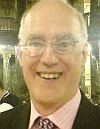
Author of Living Well with Depression and Bipolar Disorder and Mental Health Advocate

John McManamy is the author of the highly-acclaimed Living Well with Depression and Bipolar Disorder: What Your Doctor Doesn't Tell You...That You Need to Know, just out at the end of last year. He is a former financial journalist with a law degree. Soon after being diagnosed with bipolar disorder in 1999, he began researching and writing about his illness. Over a period of six years, he read thousands of research articles, attended psychiatric conferences, conversed with leading researchers and clinicians, and talked to thousands of patients and loved ones. In 2004, John McManamy received a public service award from NAMI of Connecticut, the Connecticut Psychiatric Society, and the Connecticut Department of Mental Health for his email newsletter, McMan's Depression and Bipolar Report, and his Web site, McMan's Depression and Bipolar Web http://www.mcmanweb.com/.
His book bridges the needs of the diagnosed, their friends and families, and their health care team. He currently is a mental health advocate in the San Diego area. Through examples drawn from the latest scientific research and new clinical insights into the mood spectrum, John McManamy will illustrate during his talk the importance of "knowing thyself," and how this can lead to a constructive dialogue between patients and their treating professionals, along with loved ones, with the goal of full recovery.
There will also be time at the end of the talk for "Ask the Patient" and for signing books.
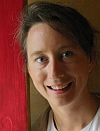
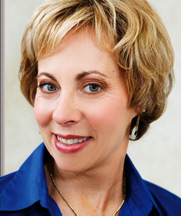
Nice blog, read journey through alcoholism
ReplyDeletenice article, so beautiful books on self love and healing
ReplyDelete